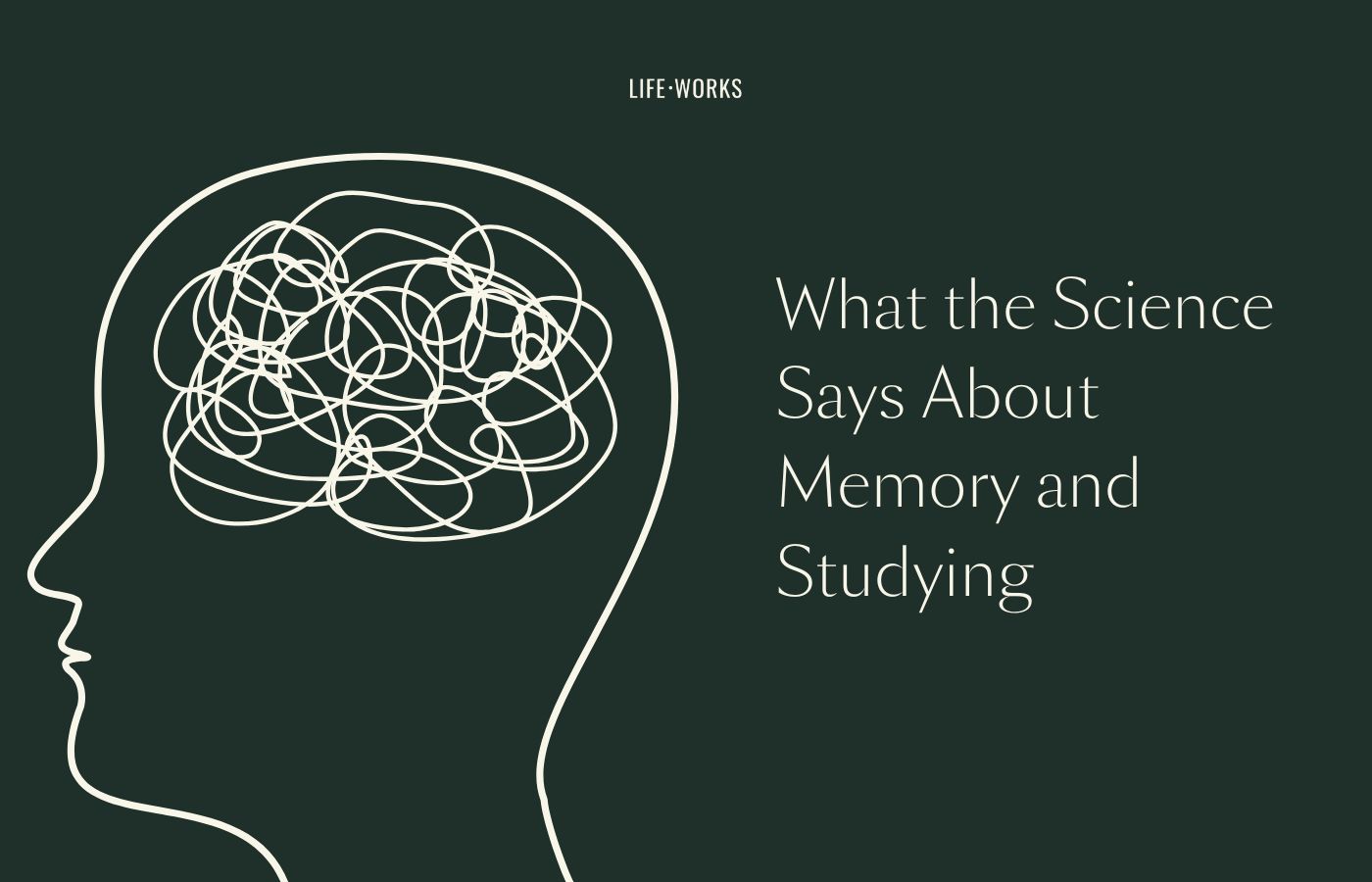
Knowing how to absorb and retain new information is one of the keys to being successful in school. At LifeWorks, we help students master the art of memorizing by offering holistic support informed by an understanding of the brain’s chemistry. With the right information and support, anyone can make memory one of their superpowers.
The brain builds memories in three steps:
A few brain areas help with these processes. The hippocampus is like a filing system that stores new memories. The prefrontal cortex is like a coach that guides focus and planning. The amygdala works like an alarm that tags emotionally important moments. When study time is calm, organized, and meaningful, these systems work together and retention improves.
Neurotransmitters are the brain’s chemical messengers, and these also play an important role in learning. A few key neurotransmitters:
First of all, good study habits matter more than the length of time spent studying. Two focused 25 minute blocks beat a scattered two hours. Memory thrives on single tasking (no toggling between apps), clear goals (“by the end I can explain this idea in two sentences”), and quick reflection (“what clicked, what needs another pass”).
Secondly, the right learning environment can make all the difference. When we feel calm, engaged, autonomous, and socially connected, we actually have an easier time learning and memorizing.
Thirdly, when digesting written material, the best approach is to read for structure, retrieve in small sets, and review on a schedule.
Finally, don’t forget that the brain is part of the body. Take care of the body to take care of the brain. Memory benefits greatly when we
Memory Enhancement Techniques from Cognitive Science
The Importance of Spaced Repetition
Timing matters here. Review just before you would forget. A sample path might look like this: Day 1, Day 3, Day 7, Day 14. Keep the sessions short and target the material that actually slips.
Keep in mind that memorizing is a skill—just like shooting free throws or playing the piano—which is to say that it responds to practice. The more we practice, the better we get. With the right understanding of the brain, we can make the most of our practice and see big improvements, in school and beyond.
Get in touch with us at Lifeworks.
1) What is the fastest way to remember what I study for a test?
Use short, focused blocks and retrieval. Read for structure, then close the page and explain the idea in your own words. Follow with a brief spaced review tomorrow.
2) How many hours should a teen study each day to improve memory?
Quality beats quantity. One to two focused blocks of 25 to 40 minutes with real retrieval and a mini review will outperform longer, distracted sessions that focus more on re-reading notes.
3) What is retrieval practice and why does it work?
Retrieval practice means bringing information to mind without looking. It strengthens memory pathways and shows what you truly know, which tells you what to review next.
6) When should we talk to a professional about memory concerns?
If forgetfulness is persistent, getting worse, or interfering across classes and activities, speak with a licensed healthcare professional. We can help connect students to additional evaluation and medical support when necessary.
References
[1] The Lifeworks Method (lifeworks.life)
[2] American Psychological Association, Learning and Memory (apa.org)
[3] Dunlosky et al., 2013, Improving Students’ Learning with Effective Learning Techniques (journals.sagepub.com)
[4] Karpicke and Roediger, 2008, The Critical Importance of Retrieval for Learning (science.org)
[5] Cepeda et al., 2006, Spacing Effects in Learning and Memory (annualreviews.org)
[6] Sweller et al., 2011, Cognitive Load Theory and Instructional Design (frontiersin.org)
[7] Bjork and Bjork, 2011, Desirable Difficulties in Theory and Practice (psychologicalscience.org)